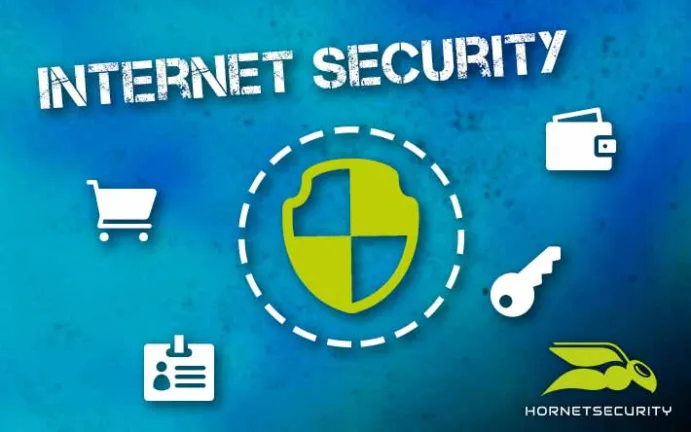
IT Security
IT Knowlege Base
What is IT Security, and why is IT Security so important?
Whenever a company, group or organization communicates online, by email or similar, and stores and transfers data and information, it must ensure its IT security. The scale of a cyber attack is increasingly devastating and the risk of becoming a victim of a cyber attack is growing every day. What dangers emanate from cyber attacks and what areas does IT Security cover that protect against the growing threat of cyber crime? Below, we provide information on the methods and tactics of hackers and the responsibilities of IT Security
What is IT Security?
IT security is the protection of information and especially the processing of information. IT security is intended to prevent the manipulation of data and systems by unauthorized third parties. The meaning behind this is that socio-technical systems, i.e. people and technology, within companies / organizations and their data are protected against damage and threats. This does not only mean information and data, but also physical data centers or cloud services.
What is the objective of IT Security?
Information has become more and more valuable over the last few years. Therefore it is all the more important to protect it. Information security is defined by the three IT protection goals of availability, integrity and confidentiality. These must be maintained. In addition, there are other parts to be added: Authenticity, accountability, non-repudiation and reliability.
Confidentiality of Information
The confidentiality of IT Security means that data is only accessible to certain authorized persons. For example, only a certain group of people can access the data it contains. In other words, access protection must be defined. This means that access rights must also be assigned.
Another central point in the confidentiality of information is the transport of data. This should always be encrypted, symmetrically or asymmetrically. This means that unauthorized persons cannot access the contents.

Information Integrity
The integrity of the information should be seen, that the contents and data are always complete and correct. So the systems must also work together for their own benefit. In order to be able to use data, they must not be changed by means of a sales or processing operation. For this reason, it is also important to note that there is no possibility for the authoritative to have (part of) the data available. As it is only possible to make a mistake, it has to be proven that this art of manipulation can be prevented, that the safety can be improved and that it can be used.
Availability of Information
Ensuring the availability of the respective information means that data processing within the systems runs smoothly. The data must be able to be retrieved correctly at the desired time. This means that the computer systems must be protected against failures. This is why there are also load tests to check the limits, so that business operations are maintained in any case.
Which areas include IT Security?
Endpoint Security
All necessary end devices, i.e. PCs, notebooks, tablets and cell phones must be protected. This includes the associated applications and operating systems. Endpoint security is about protecting everything that is switched within the company network up to the Internet.
Internet & Cloud Security
From the moment that information is scattered over the Internet or sent by e-mail, IT security takes on a new significance. The risk of systems, information and data becoming the target of cyber attacks is increasing. From then on, it is also true that users or the data of users and users are protected. Because as soon as users are on the move in the World Wide Web, they leave footprints via their digital identity.
User Security
Because they don’t know what they’re doing, even the users in your company can be a major risk. The IT department, where there is awareness, should be very careful to counteract this. Whether through an application on the private smartphone or through updates on the laptop, the risk is there. If an email attachment is too large, it should not be directed immediately to your private email address. The IT department must create user awareness so that every employee in the company pays the greatest attention to the issue of IT security.
What impact does a cyber attack have on my data?
If one of these three areas of IT security is breached, this can have serious consequences for the companies and businesses affected. Cyber-attacks allow hackers to access confidential information, such as internal information or personal data. Industrial espionage, misuse of credit card data or theft of personal identities can be the consequence. Manipulated data can lead to the disruption of production because automated machines no longer function properly.
Cyber Attack Methods: What attacks exist?
Cyber-crime is constantly changing and new methods are being developed to identify and exploit security holes. In general, IT Security is asymmetric: in order to significantly damage a company’s operating procedures, a cyber-criminal must successfully exploit a single weakness. Companies, on the other hand, have to ensure comprehensive protection to safeguard their IT security.
Advanced Persistent Threats (APTs)
Advanced Persistent Threats (APT) means “advanced and persistent threat”. Hackers use a lot of time, effort and resources to penetrate a system. First they infiltrate a computer to spy on internal processes and from there they sabotage the entire network. This gives cyber-criminals permanent access to a network and from there they can spread more malware to attack the entire system.
Malware
Malware can be any type of malicious program that can cause damage to infected systems. These include worms, viruses, Trojans and ransomware programs. WannaCry, Petya and Ryuk in particular have demonstrated in recent years that malware is quite capable of bringing companies to the brink of closure or even insolvency if IT Security is inadequate. More about malware you can read here.
Phishing
Phishing is an attempt at fraud carried out electronically, in which a fake email is sent to the recipient, who often does not recognize it as such at first. This method of cyber-attack, in the form of a professional looking email, is often designed to trick the recipient into revealing confidential data. Learn more about phishing here.
DDoS Attacks
DDoS stands for Distributed Denial Of Service. In a DDoS attack, bots cause numerous requests to the victim’s server. As a result, certain services are paralyzed because the affected servers are overloaded. Here you can find more information about DDoS attacks.
What is Critical Infrastructure?
Critical infrastructures are the companies, organizations and facilities that are essential for the maintenance of essential social functions, health, security and economic and social well-being of the population. They include, for example, energy and water companies, logistics companies, hospitals and the financial sector. The interruption or destruction of the operations of these companies would have a significant impact. Learn about the consequences and possible measures in case of cyber-attacks on the energy and logistics sector, among others:
- Energy providers at the center of hacker attacks
- Cyber-crime threatens the logistics sector
- Cyber-attacks on the automotive sector are on the rise
IT Security Conclusion
Cybercrime has an increasing impact on a country’s economic and political processes. The consequences of cyber-attacks show through numerous incidents that IT Security is indispensable in today’s world. If the three objectives of protecting confidentiality, integrity or availability are not met, this can have devastating effects on the profitability of a company.
Hornetsecurity is a first-class provider of managed security services. The products include everything needed for seamless and above all secure communication via email and the Internet. No additional hardware or software is required.
Visit Our Knowledge Base
Did you like our contribution from the knowledge database on the subject of IT Security ? Then you get to the overview page of our knowledge database here. There you will learn more about topics such as DDoS Attacks, Crypto mining, Cryptolocker virus, phishing, brute force attacks, GoBD, cyber kill chain, computer virus and ransomware.

